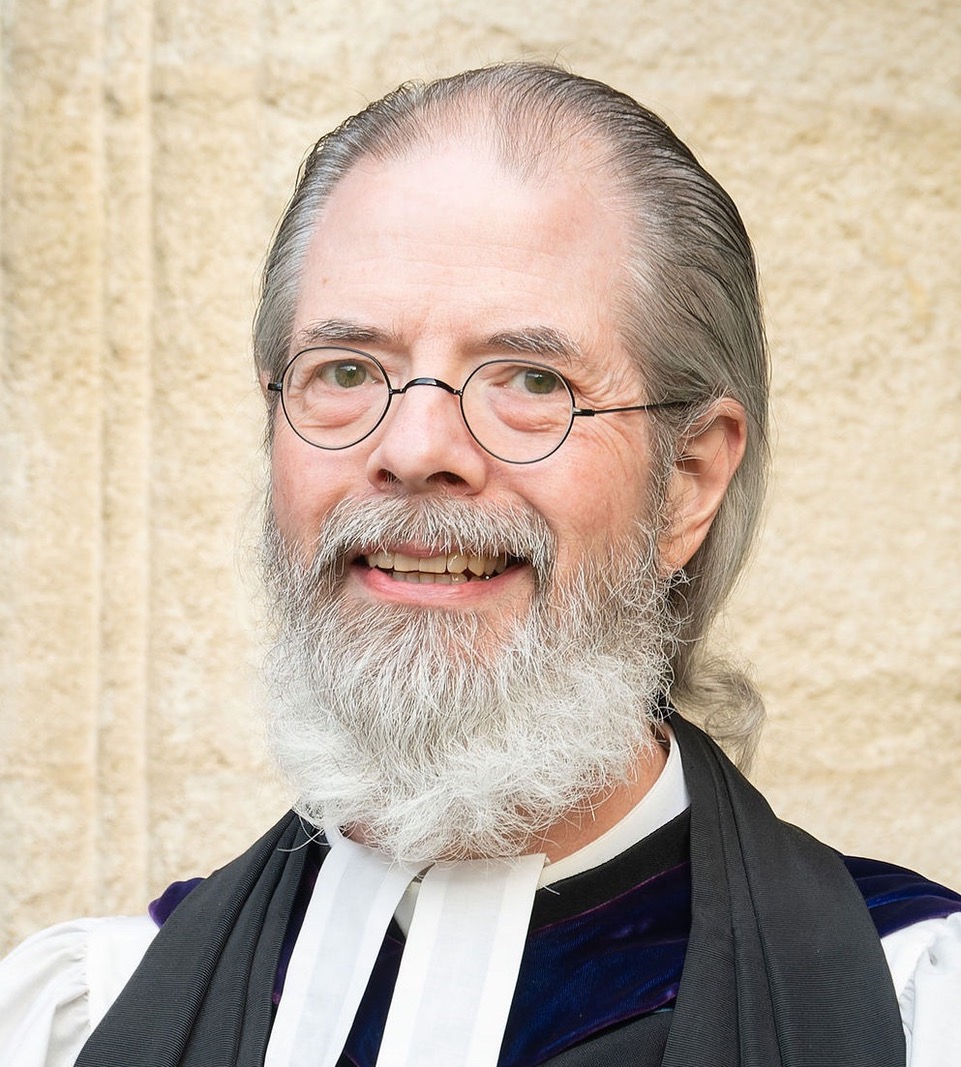Commentary on James 1:17-27
These verses from the Epistle of James include the point that the epistle is best known for: “[B]e doers of the word, and not merely hearers,” just as next week we will read James reminding us that “faith by itself, if it has no works, is dead.”
It’s tempting to fixate on the apparent contrast to Paul’s teaching on justification by faith alone, although the contrast is less sharp than might appear to a casual reader. The theological substance of the passage, however, lies in its deep connections to the rest of James’s theology, and James expresses his ideas so circuitously that one can easily lose track of it.
Here and throughout the letter, James drives toward the point that our theological integrity — our whole-hearted, consistent, comprehensive devotion to God — requires of us a particular kind of life and character. As God the Father brought us into being in an act of perfectly free giving, so we — “a kind of first fruits of his creatures” — display God’s own changeless goodness and generosity by truthfulness, humility, gratitude, patience, steadfastness, and generous provision for those who depend on us. Earlier in the letter, James has criticized those who respond to God with only partial commitment (“double-minded [or ‘half-hearted’] man, unstable in all his ways”), echoing Jesus’ warning against setting one’s heart on earthly treasures, or against putting one’s hand to the plough and looking back. James understands the inclination to mix allegiance to God with practical concerns for oneself, but cautions his readers that such divided loyalties will not withstand the trial of hard times.
In this context, this morning’s reading stakes out some of the difficult terrain on which the readers are called to cultivate their piety. James cares particularly about the ways we characteristically speak; precisely because speech is so easy, so immediate, and so very hard to control, James sees it as the test case for genuine faithfulness. You cannot, he counsels us, casually insult your neighbor (who is, like you, made in God’s own image) and presume to be approved by God. You cannot give voice to God’s wrath out of your own irritation at another. By the same token, our merely listening to divine teaching without putting it into effect shows that you have not benefited from God’s commands; you remain a half-hearted, unstable semi-believer. Like someone who gazes admiringly in a mirror, your self-understanding always requires booster shots of another peek, another day, whereas the one who looks into God’s commands for self-understanding can perceive an enduring standard of who we are and should be. The integrity of our inheritance from the Father, of our identity and our self-image depends on truthful, consistent regard for others.
Since James expresses this in tangled prose, the sense of this morning’s lesson may escape casual listeners (and readers). He first affirms God’s creating Fatherhood, characterizing God as “Father of lights” (probably referring to stars) in contrast to Desire, which (in James 1:14f) conceives and bears Sin, which in turn gives birth to Death. Whereas desire corresponds to fluctuation and instability (like the phases of the moon, or solar eclipses, or even daily darkness), the celestial God is unchangeably, reliably light; where desire seeks its own interest, God offers “every good gift and every perfect present” to creation. So James presents a cosmology in which the variability and transience of the world of desire, sin, and death represents an opposite option from the enduring, unwavering truth of God’s living way, and our divine genealogy should align us with God’s characteristics rather than the unreliable, ephemeral characteristics of a world governed by desire.
From these cosmological premises, James seems to change the subject to human conduct. His exhortation here, though, is not a departure from the point he made in the previous verses: we, as first-fruits (or “a down payment,” or “first installment”) of God’s truthful word, should by all means conduct ourselves as such. If we crowd our weedy lives with the rank growth of anger, foul language, insult, and falsehood, we make our souls an inhospitable field for cultivating the word that is implanted in us by virtue of our alignment with God and truth. Our mercurial emotions and self-important speech align us with the mortal, earthly power of sin and death; by patient humility, though, we make room for God’s own saving word to come to expression in us. James urges us to live in ways congruent with our cosmic origins in God and truth.
At this point, we should pause and note that James uses “the logos” in ways that sometimes seem to imply a connection with “the gospel” (for which “the word of truth”, as in v 18, functions as a synonym in Ephesians 1:13 and Colossians 1:5), and at other times to make a connection to the Torah as the true expression of God’s way, the perfect law of liberty. Alternatively, one may take the very many clues that point to deeply Judaic theology and culture as the environment for James as a warrant for understanding “the logos” as the Torah, the specifications of the kind of life God wills for humanity — that is, it is a word which, if we live by it, makes us free. The letter also may show influence from Stoicism, which deploys “the logos” in its own sense (and which would help clarify some of the cosmology and the reasoning from the natural world in chapter 3). While some readers will see the connection to the vivifying word of the gospel (James 1:18), which gives freedom according to the teaching and pattern of Jesus as king (v 25), James does not give explicit grounds sufficient for upholding a clear-cut, conclusive definition of “the word” in this letter. It may be best to approach James’s usage as a sign that these usages are not sharply distinguished for him — that the Jacobean logos shares aspects of all three.
James foresees that one might take the patience and humility that he commends to us as a warrant for mere passivity. Contrariwise, he instructs his readers that truly to hear the word, truly to live in the regal liberty of the word, involves actually putting it into effect. He uses the perplexing metaphor of the mirror to contrast a superficial, transient acquaintance with our nature (how many of us have glanced into a mirror to check our hair or our attire, then had to look again right away because we had not retained the perception from that first glance?) with the abiding, true self-knowledge that comes from hearing and practicing the law. James’s goal, here, is not simple adherence to Torah (or any law), but the kind of ingrained habitual knowledge that comes from repetition and practice.
James closes this part of the letter by drawing together two of the examples he has cited earlier. Glib pieties do not suffice purify the heart of a believer; if one thinks oneself secure simply for praising the Lord and carping at sinners, one has not made spiritual progress but is half-heartedly trying to hold on both to God and to sinful desire. If, on the other hand, you reliably provide for the needy and live in a way that bespeaks unwavering allegiance to God, that gives the surest sign that you are living a “pure and undefiled” life that exemplifies the characteristics of your celestial Father.


August 30, 2015